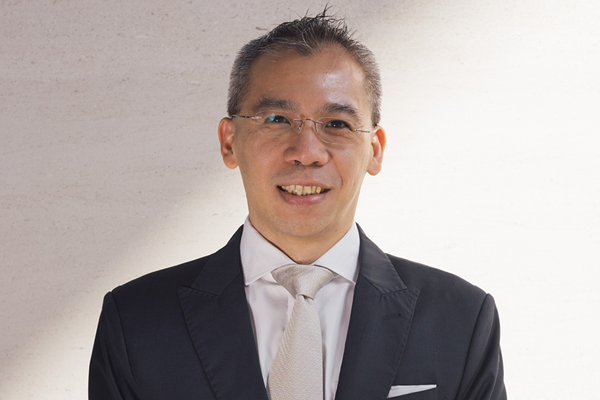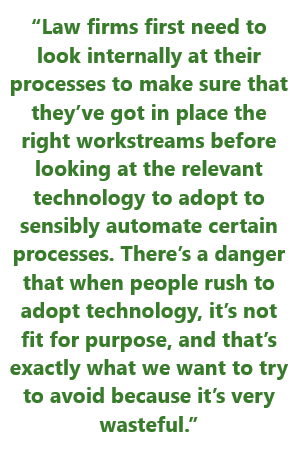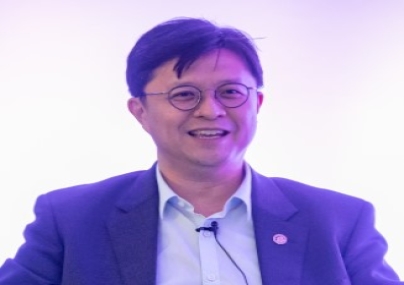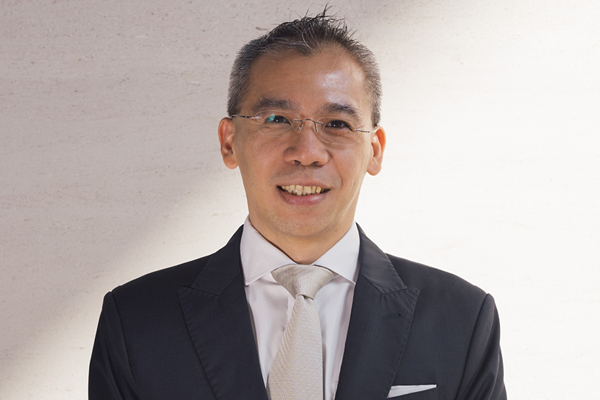
The Singapore Academy of Law (SAL) recently opened applications for its new legal tech accelerator, GLIDE. As the first one of its kind in Asia, the programme will help support legal practitioners in taking their innovation and technology game to the next level, and quickly, says Paul Neo, SAL’s COO
ALB: TELL US ABOUT GLIDE AND WHAT IT WILL DO.
Paul Neo: GLIDE is a key component of the SAL’s Future Law Innovation Programme, FLIP. FLIP is a holistic end-to-end type solution to help our legal community grapple with the digital disruption that is impacting the legal sector here and around the world. FLIP has three tracks. The first track is called Lighten-Up. It is very productivity-centric, helping the small-law-firm practitioner put in place process that can build capacity, so that he can begin thinking about innovation. Once the lawyer has done this and has more capacity to invest in the future, we want him to begin to think about how he can monetise internal capabilities. And once he has identified new opportunities, we would like him to develop an executable business plan. Then he can move to the third track – accelerate his growth, which is where GLIDE comes in. Once he’s got the business plan and the proof of concept, and has moved on to creating a minimal viable product, we want to help him scale. So that’s what GLIDE is all about. If you look at it from Lighten-Up all the way through to accelerate, where GLIDE is, you have an end-to-end solution that would take a lawyer from business as usual today, to moving him into the future practice of law.
ALB: WHAT ARE SOME OF THE PRACTICAL SKILLS PARTICIPANTS WILL BE ABLE TO TAKE AWAY FROM THE PROGRAMME?
Neo: As with most accelerator programmes, there is a component of teaching things like business modelling, opportunity identification, how to pitch and so on, but this really isn’t the core focus of GLIDE. GLIDE is really about helping our members understand local markets needs across different countries. Within ASEAN we’re looking at Malaysia, Indonesia, the Philippines, Vietnam, and further afield in India and China, Hong Kong, Japan, Korea. They all have very different requirements locally, and each of these countries approach legal technology quite differently.
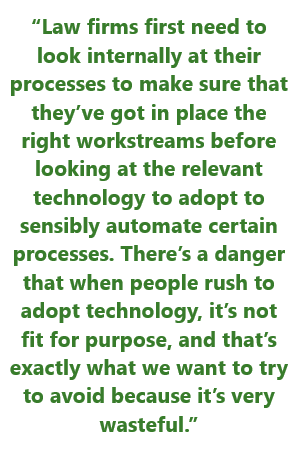 ALB: HOW DO LAW FIRMS NEED TO THINK ABOUT OR INCORPORATE TECHNOLOGY INTO THEIR PRACTICES?
ALB: HOW DO LAW FIRMS NEED TO THINK ABOUT OR INCORPORATE TECHNOLOGY INTO THEIR PRACTICES?
Neo: I would say technology is not the starting point. Law firms first need to look internally at their processes to make sure that they’ve got in place the right workstreams before looking at the relevant technology to adopt to sensibly automate certain processes. There’s a danger that when people rush to adopt technology, it’s not fit for purpose, and that’s exactly what we want to try to avoid because it’s very wasteful. Technology should come after the processes have been identified and developed. When you’re talking about law firm operations as well as service delivery models, technology shouldn’t even be number two. I think the second thing that’s important is organisational culture and the people. Technology isn’t always the right solution, it could just be putting in place streamlined processes or having a good people-training framework, all with very commonplace technology. You can actually do a lot with the tools you find in Microsoft Office 365. Technology is an important tool, but it’s not the first thing that law firms should turn to.
ALB: HOW WILL INVESTING IN LEGAL TECH CHANGE SINGAPORE’S LEGAL MARKET?
Neo: We can’t be lagging in technology if we want Singapore to continue to be a hub for legal services. It’s important to make sure Singapore remains relevant as an international services centre by having world-class legal tech companies that can offer globally relevant solutions.
To contact the editorial team, please email ALBEditor@thomsonreuters.com.
